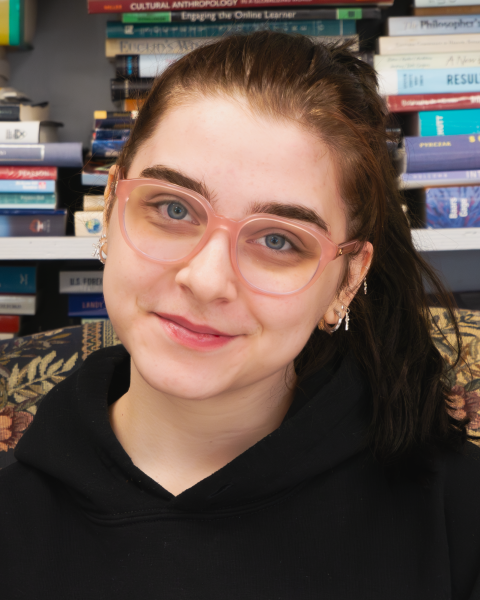A somewhat hidden gem of Delta State’s student resources is the Writing Center (WC). Located in Kethley Hall 201, the WC employs student workers to offer writing advice to the Delta State student population.
The WC is a resource that has been available for student usage since the late 1980s. Even so, most students are unaware of it until a professor requires it for an assignment.
The Writing Center’s Mission and Benefits
The mission of the writing center is to assist students through the writing process. The WC offers peer tutoring that is highly personable and conforms to each student.
The one-on-one tutoring style creates a welcoming environment for the student to share their work. Growth of the student’s writing abilities is the root of peer tutoring. Students of all different writing abilities can benefit from a peer tutor. The tutors available for appointments use their expertise, knowledge, and empathy to connect with students and give unique advice to each student and assignment.
Dr. Judith Coleman, the director of the writing center for close to five years, says “What we do here is to provide that safe space, a pure space, where students feel like ‘okay, this is a place where they [tutors] know what they’re doing when it comes to writing and can give me real feedback.’”
Dr. Coleman also highlighted that not only can these peer tutors help with improved writing for better grades but also for the therapeutic atmosphere that is present in the writing center. All of these aspects culminate in a welcoming environment for students.
Having face-to-face sessions, virtually or in person, contributes to the success of the sessions.
“[B]eing able to ask and question [during the writing process] is enormously important.” Dr. Coleman says.
Additionally, tutors being peer tutors, rather than faculty or staff, creates a more comfortable space for the student to seek help and ask questions without judgment.
Dr. Coleman highlights this saying, “Empathy and kindness go into peer tutoring.”
Overall, the mission of the WC is to empower writers, regardless of struggles through a safe atmosphere and guidance.
Misconceptions
A common misconception of the WC is that it can only be utilized by “bad” or “struggling” writers. Writers of all skill levels can benefit from a consultation with one of the tutors. Many higher-level students gain skills from discussions with peer tutors.
Dr. Coleman highlighted extensively that skill level and completion status of assignments brought in are not a concern for her or the tutors.
She says, “This is not a place of judgment.”
Students often think that tutors only specialize in English essays and formal papers. In reality, tutors can assist in all departments and modes of writing.
Dr. Coleman states, “We have helped students with creative pieces, grad school applications, …. Any writing is fair game.”
Completed work is also not necessary. A session can take many forms, including brainstorming, overlooking an outline, or assisting in the organization and content of a draft.
Dr. Coleman states, “Anything that falls under the writing process is absolutely fair game.”
Lastly, it is important to note that the WC is not a corrections service. Correction services focus on grammar and syntax errors, which are important, but the writing center focuses on higher-order concerns like the organization and argument of an essay.
Dr. Coleman says, “That kind of correction [grammar and punctuation] is not really in the purview of what a writing center does, what a peer tutorial can achieve.”
How Does a Session Go?
The WC has an appointment-based system called mywconline.com. Appointments can be made for face-to-face sessions in the WC office or virtually!
After students book a 30-minute appointment through the online portal, they will appear at the WC office or through the MyWCOnline video chat feature. It is important to note that appointments can be made in real-time if a tutor is available. On the other hand, a student can also make an appointment weeks ahead of time.
Upon arrival, the tutor will greet them and instantly dive into the session. The “meat” of the session will be spent on overlooking a draft or brainstorming. (As stated above, every session will take a different form because of the unique student, tutor, and assignment). Sessions have a conversational tone to them rather than corrective one.
Dr. Coleman states, “A peer tutorial session is a conversation, not an exercise in correction.”
Tutorials have a personal tone to them, so everything is unique to the student and their respective assignment. Sessions have a 30 minute limit but there is no confines to the work you can bring to the tutor.
The goal of the session is for the tutor to assist the student with whatever they may be confused or stumped with. This can range from brainstorming to solidifying the argument of an essay.
Dr. Coleman says, “Good writing requires brainstorming on one end and revision on the other. In the middle is a really messy process and it’s fine that it’s messy…. Messy can be good!”
She goes on to say, “It [writing] is a skill you have to hone.”
Peer tutors are there to assist the student with any step of the writing process! The WC and its tutors specialize in guiding students through the writing process and highlighting things that can be improved.
Writing Center Links
Create an account with the WC appointment scheduler today so you’re ready for your next assignment and connect to their social media accounts for their latest news!
- University WC Information Page: https://www.deltastate.edu/artsandsciences/languages-and-literature/writing-center/
- MyWCOnline (Appointment Scheduler): https://delta.mywconline.com/schedule/calendar?scheduleid=sc65b184313b1d4
- X: https://twitter.com/DeltaStateWC
- Instagram: https://www.instagram.com/deltastatewc/




